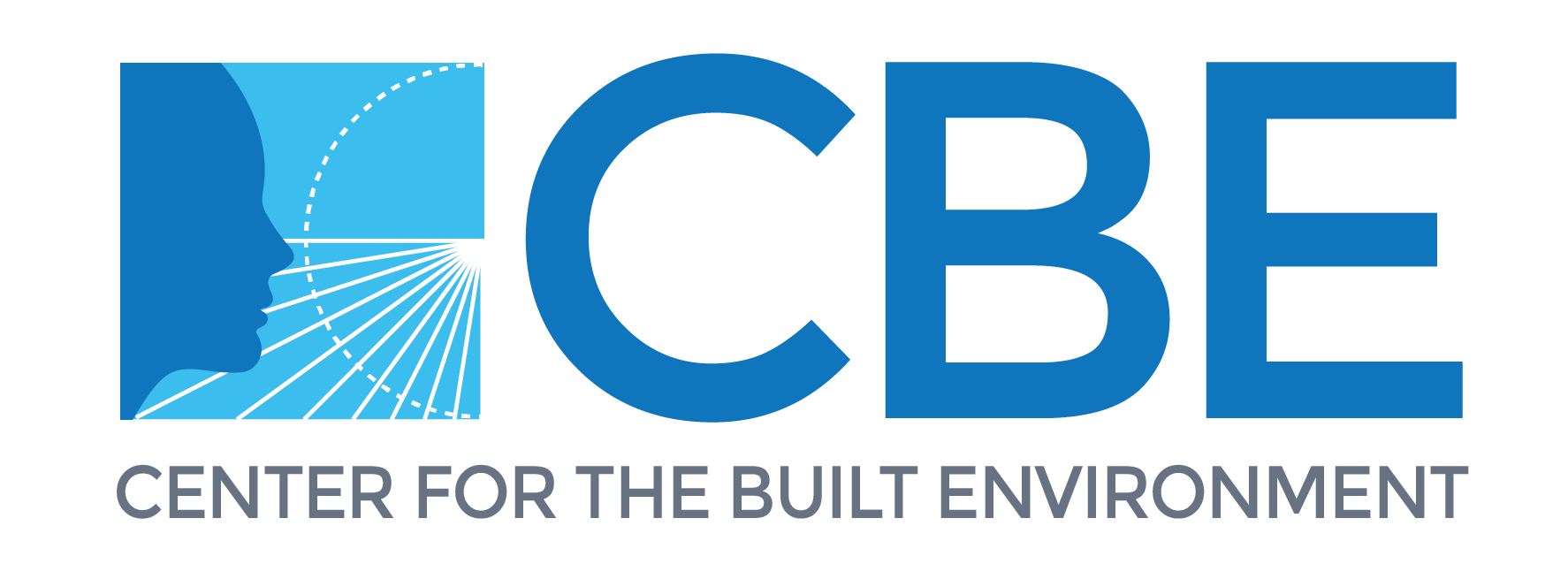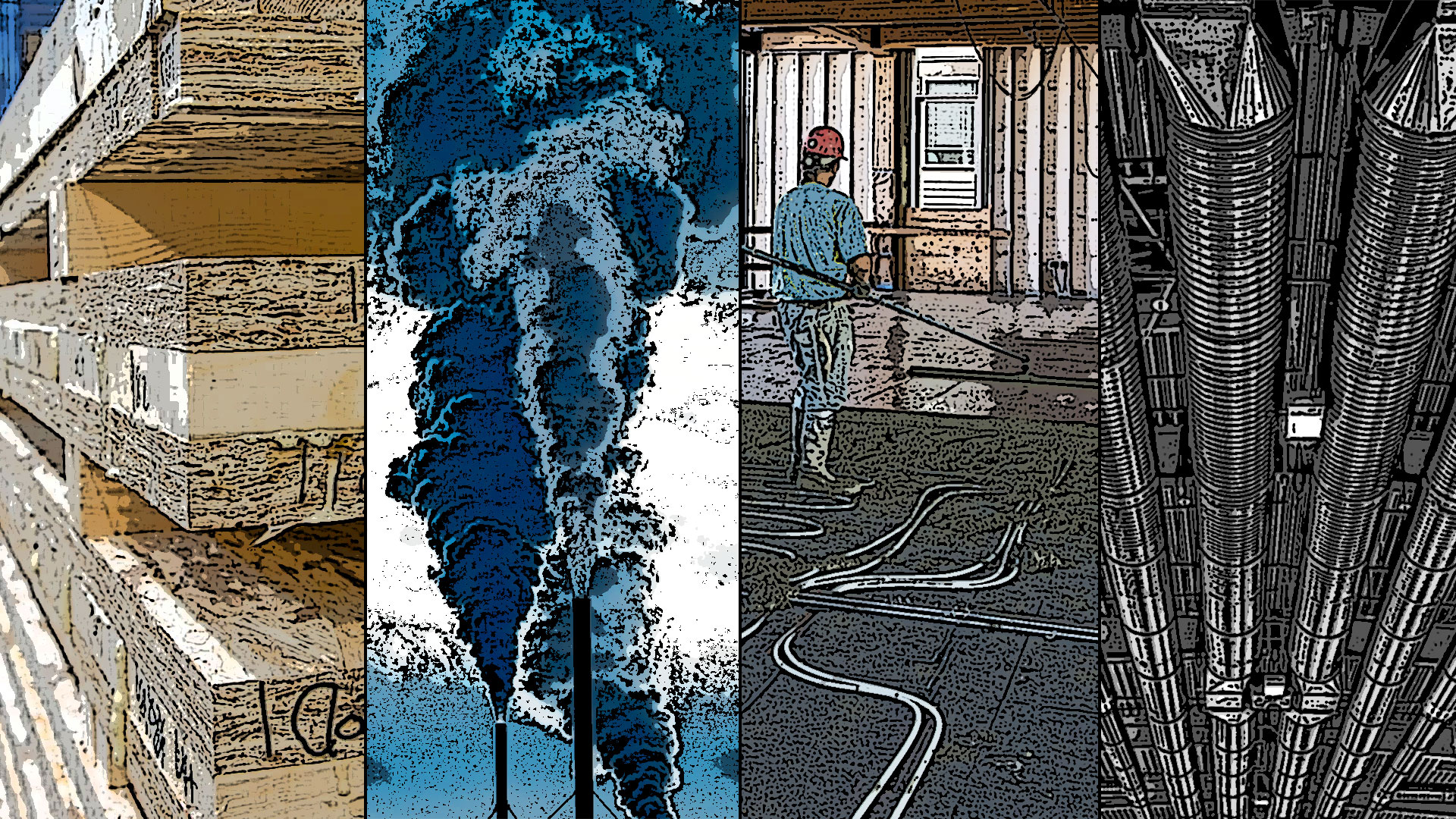Applying life-cycle assessment and other tools to advance the rapid decarbonization of buildings.
Status: Current
Funding Sources: ClimateWorks Foundation
Project Objective
This project will provide design guidance, tools, and knowledge to building industry stakeholders and policymakers to support the rapid and wide adoption of strategies to reduce embodied carbon in the building sector.
Significance to Industry
Embodied carbon refers to the greenhouse gas (GHG) emissions associated with designing, constructing, maintaining, and decommissioning buildings. Embodied carbon differs from the operational GHG emissions, which come from the electricity, natural gas and refrigerants used while operating the building. While operational GHG emissions can vary year to year due to changes in energy supplies and building use, embodied carbon is highly dependent upon decisions made at the outset of building design and construction. Historically, operational energy has been the primary focus for research and policy efforts. However, the carbon embodied in buildings and infrastructure has become a critical concern for rapidly reducing GHG emissions that are contributing to our climate crisis. A wide variety of tools and methods are being applied to this concern, including life-cycle assessment (LCA) and many competing commercial software products. This work is being done by a wide range of industry stakeholders, from engineering and design professionals, ESG consultants, real estate developers, and academic institutions.
Research Approach
In 2022 CBE launched a new research program focused on embodied carbon. This work will build on the center’s record of successfully launching and growing new research areas, often based on information gaps identified by CBE Industry Partners, often with modest initial funding but leading to external grants that support multi-year, multi-project efforts. Through a combination of scientific research methods including simulation, field measurement and demonstration, and laboratory experiments, past programs have resulted in new knowledge and insights that changed both industry practice and relevant codes or standards at state and national levels. The new program was created with support from the ClimateWorks Foundation, and in collaboration with the Carbon Leadership Forum (CLF).
This work is expected to be a multi-year, multi project effort, and the work phases are currently under development. We are developing and conducting projects aimed at investigating multiple facets of embodied carbon in buildings including low carbon material selection for building components (facades, structural framing systems) and innovative construction methods (prefabricated, modular) for multi-family residential development. A broad overview and evaluation of Whole Building LCA software tools and industry practices has further informed our research planning with future projects aimed at assessing embodied carbon from mechanical, electrical, and plumbing systems in buildings, and investigating supply chain decisions on the life-cycle impacts of a building.
One important scope of work will be to contribute to new initiatives being led by CLF. As part of CLF’s efforts to conduct a Whole Building LCA Benchmark Study for buildings in North America, CBE will assist in conducting analysis on case study buildings for the “California Total Carbon Report.” This page will be updated as the details of the scope of work are advanced.
Publications and Reports
Greer, F., Horvath, A., & Rakas, J. (2023). Life-cycle approach to healthy airport terminal buildings: Spatial-temporal analysis of mitigation strategies for addressing the pollutants that affect climate change and human health. Transportation Research Record, 2677(1), 797-813 https://doi.org/10.1177/03611981221101896
Greer, F., Rakas, J., & Horvath, A. (2020). Airports and environmental sustainability: A comprehensive review. Environmental Research Letters, 15(10), 103007. https://iopscience.iop.org/article/10.1088/1748-9326/abb42a
Greer, F., Chittick, J., Jackson, E., Mack, J., Shortlidge, M., & Grubert, E. (2019). Energy and water efficiency in LEED: How well are LEED points linked to climate outcomes? Energy and Buildings, 195, 161-167. https://doi.org/10.1016/j.enbuild.2019.05.010

